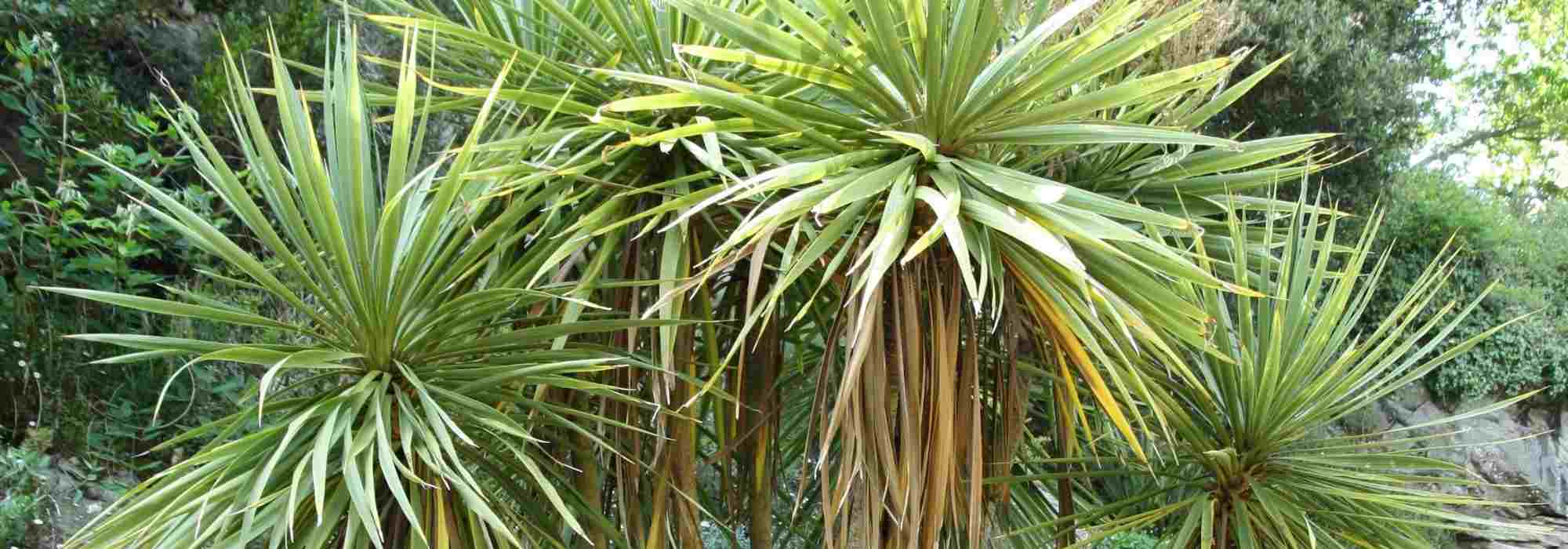
Combining Cordyline
6 inspiration ideas!
Contents
With its architectural silhouette and evergreen graphic foliage in green, purple, or variegated forms, the cordyline or Dracaena always makes a spectacular impact in the garden. Its palm-like appearance and long, colourful straps never go unnoticed. Whether planted alone or in groups, it serves as a focal point in large exotic rockeries or stands out in minimalist, stone settings. From its southern origins, this beautiful perennial has retained good resistance to heat and drought, but it is somewhat frost-sensitive. It prefers to settle in gardens with a mild climate, spared from severe frosts, or in large pots that can be stored indoors during winter elsewhere.
Sensational in every season, it allows for the creation of original and vibrant scenes. While it shines as a focal point, it also knows how to share the spotlight with other plants that, like it, enjoy rich, rather cool soils in summer that are well-drained.
Discover which plants to pair it with to create stunning scenes in the garden!
⇒ To learn all about Cordyline, check out our complete guide: “Cordyline: plant, grow, and maintain”
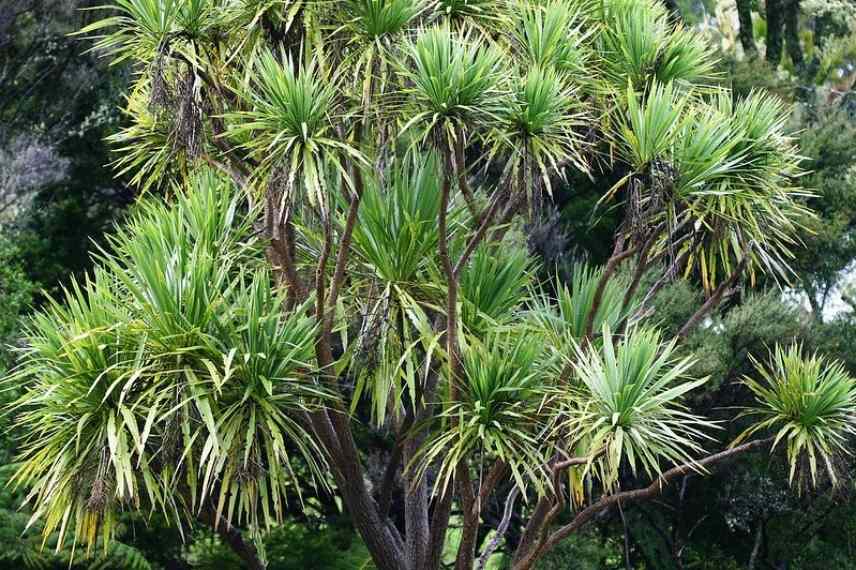
Immediate boarding for the islands with Cordyline australis, here in coppice shoots cultivated in New Zealand (© Tony Foster)
To structure an exotic bed
With its long, ribbon-like leaves in stunning colours, the cordyline is a true source of inspiration for creating an exotic border: its richly coloured foliage, with the charm of the antipodes, truly shines among exuberant plants. Its presence always adds depth, exoticism, and structure to a setting. At the heart of an exotic-inspired garden, it is ideal for providing relief to a border composed of Mediterranean perennials and small bushes. Pair it with the lush foliage of a banana plant, the magnificent floral bracts of Leucadendron ‘Safari Sunset’, Lophomyrtus ‘Magic Dragon’, or even the brightly coloured bottlebrush of a Callistemon.
For example, install a Cordyline australis ‘Sunrise’, a Cordyline australis ‘Red Star’, supported by large Phormiums (Phormium tenax ‘Purpureum’, ‘Variegatum’) and an Astelia chathamica ‘Silver Shadow’, which will help structure a somewhat flat exotic composition. Complete the scene with other brightly coloured blooms, such as Watsonias, Kniphofias, Crocosmias, cannas, or Giant Fennel, which will ensure the decor remains vibrant throughout summer.
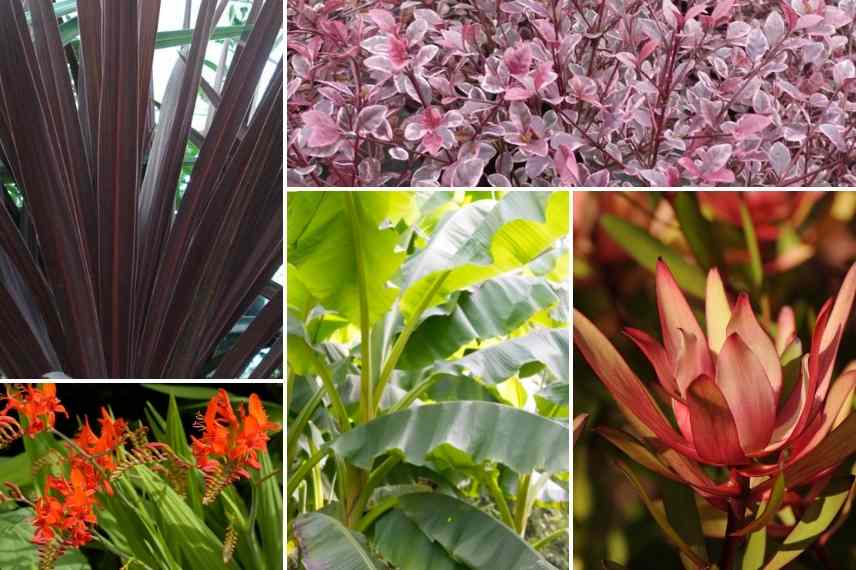
Cordyline australis ‘Red Star’ alongside exotic plants: Lophomyrtus ‘Magic Dragon’, Crocosmias, a banana plant, and Leucadendron ‘Red Gem’
Read also
Cordyline : to plant, to grow, to careIn a mineral scene
In a contemporary garden, Cordylines such as Cordyline australis pair beautifully with other equally graphic and easy-to-maintain plants like bamboos, Yucca (Yucca gloriosa), hardy cacti, or agaves (Agave americana ‘Mediopicta Alba’, Agave montana). Their sword-like leaves complement the structural architecture of palms, or even a Dasylirion glaucophyllum. Surround your plants with gravel, white pebbles, or pouzzolane.
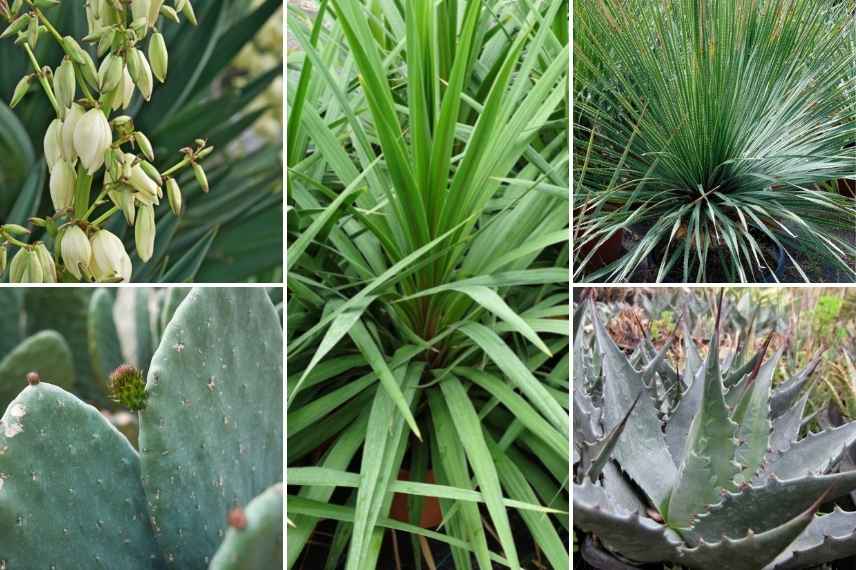
A Cordyline australis ‘Peko’ at the centre, paired with a Yucca gloriosa, an Opuntia, a Dasylirion, and an Agave montana
Discover other Cordyline
View all →Available in 1 sizes
Available in 2 sizes
Available in 2 sizes
Available in 1 sizes
Available in 4 sizes
Available in 1 sizes
Available in 3 sizes
Available in 1 sizes
Available in 3 sizes
Available in 1 sizes
In a large rockery
You can create very graphic little scenes! A small variety like the Cordyline australis ‘Peko’, which resembles a small multicoloured palm, or the Cordyline australis ‘Charly Boy’ will be perfect for naturally structuring the exotic and mineral decor of a large rockery all year round. You can pair them with frost-resistant opuntias like the Opuntia humifusa ‘Millevaches’, the rosettes of agave filifera or victoriae reginae or Euphorbia characias, as well as ground-cover perennial plants like Festuca valesiaca ‘Glaucantha’ or Festuca ‘Elijah Blue’, and Delosperma cooperi, which can withstand frosts down to -10°C. You can also accompany them with other succulent plants like the Cylindropuntia imbricata.
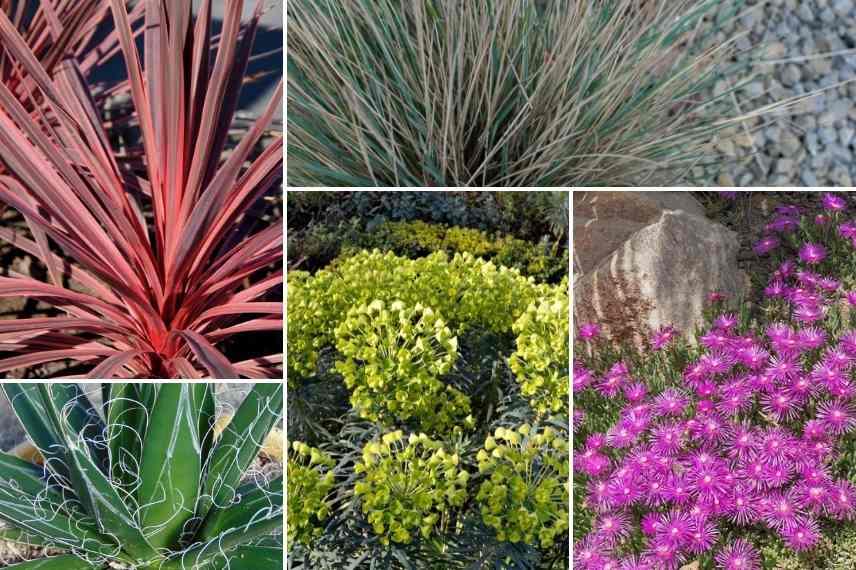
A colourful association in a dry rockery: Cordyline australis ‘Charly Boy’, Festuca glauca, Agave filifera, Euphorbia characias, and Delosperma cooperi
Read also
Overwintering CordylineIn a foliage bed
The generous dimensions and evergreen foliage of the Cordyline make it well-suited to enhance a green border throughout the four seasons. In the heart of a large border, consider placing a Cordyline australis ‘Torbay Dazzler’, which produces long striate leaves in yellow and green, and punctuate the arrangement with large grasses such as Miscanthus, Calamagrostis, Pennisetums, or Stipa pennata or Stipa gigantea, which will soften the spiky personality of the cordylines. They will allow for contrasting shapes based on foliage interplay.
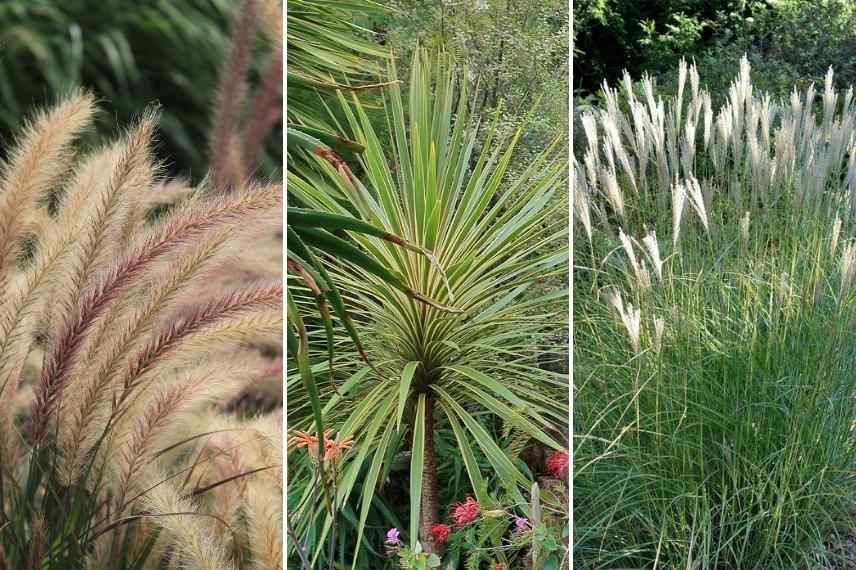
Combine soft-structured foliage like Pennisetum alopecuroides (on the left) and Miscanthus transmorrisonensis with a Cordyline ‘Torbay Dazzler’ (© Cultiver 413)
In a seaside garden
With their colourful variegated foliage that withstands sea spray well, Cordyline australis ‘Southern Splendour’ and ‘Pink Passion’ are perfect for adding a splash of colour to a temperate garden! Pair them with the stunning Agave americana, and plants from Oceania like Pittosporum tenuifolium ‘Tom Thumb’, Pseudopanax Ferox, or Olearia macrodonta ‘Major’.
For a distinctly exotic maritime decor, they will also enjoy the company of Chinese palms, Yuccas filamentosa, Yucca gloriosa, and a Grevillea ‘New Blood’ with its strikingly vibrant flowers.
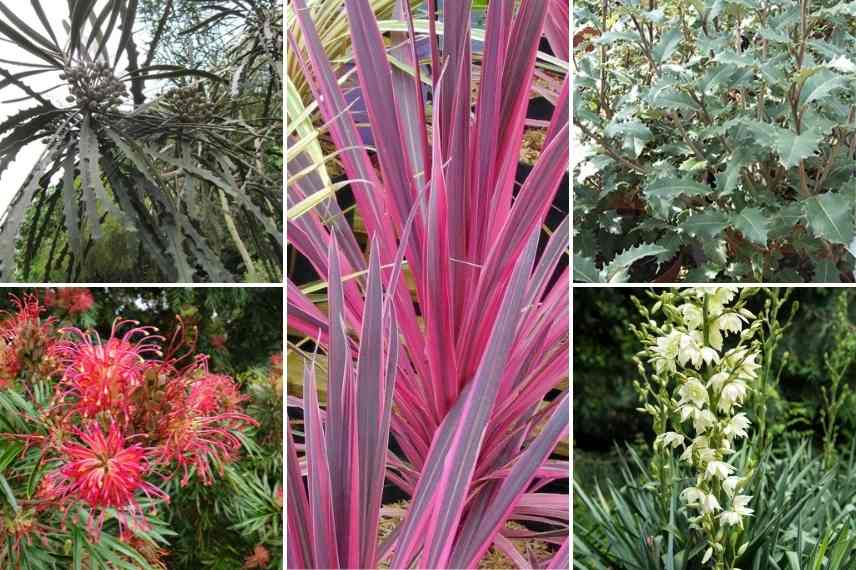
By the sea, the shimmering Cordyline ‘Southern Splendour’ pairs beautifully with a Pseudopanax ferox (© Leonora Enking), a Grevillea, an Olearia macrodonta ‘Major’, and a Yucca filamentosa
In a pot on a terrace
The Cordyline does not tolerate severe frosts, as it cannot withstand temperatures below 10°C. Therefore, in colder regions, it should be planted in a pot and brought indoors for the winter, either in a greenhouse or a lightly heated conservatory. Easy to grow in pots, it adds an exotic touch to your terrace or balcony. In a large pot, a Cordyline obtecta ‘Superstar’ will create a stunning effect when placed next to a Trachycarpus wagnerianus or miniature palm. Plant at their feet a carpet of verbena or Delosperma cooperi, or sow some purslane.
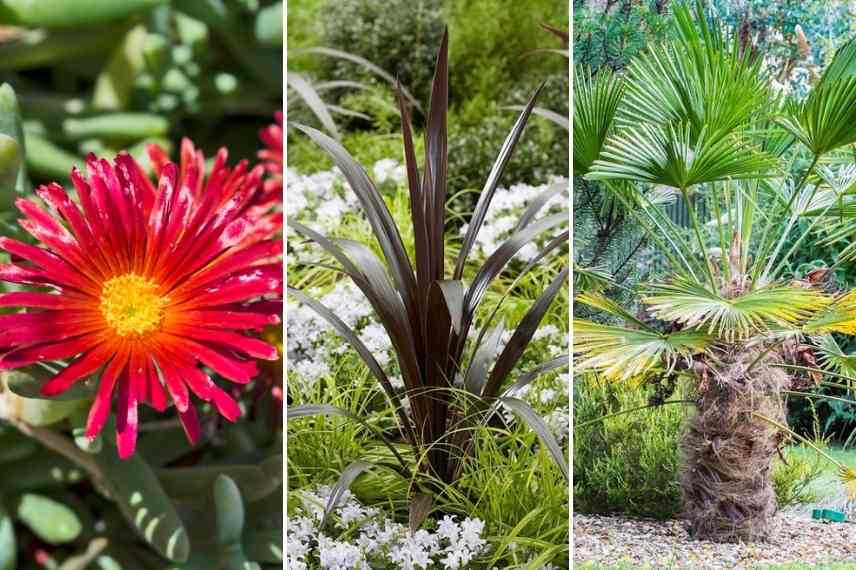
A Cordyline obtecta ‘Superstar’ accompanied by Delospermas and a Trachycarpus wagnerianus
- Subscribe!
- Contents
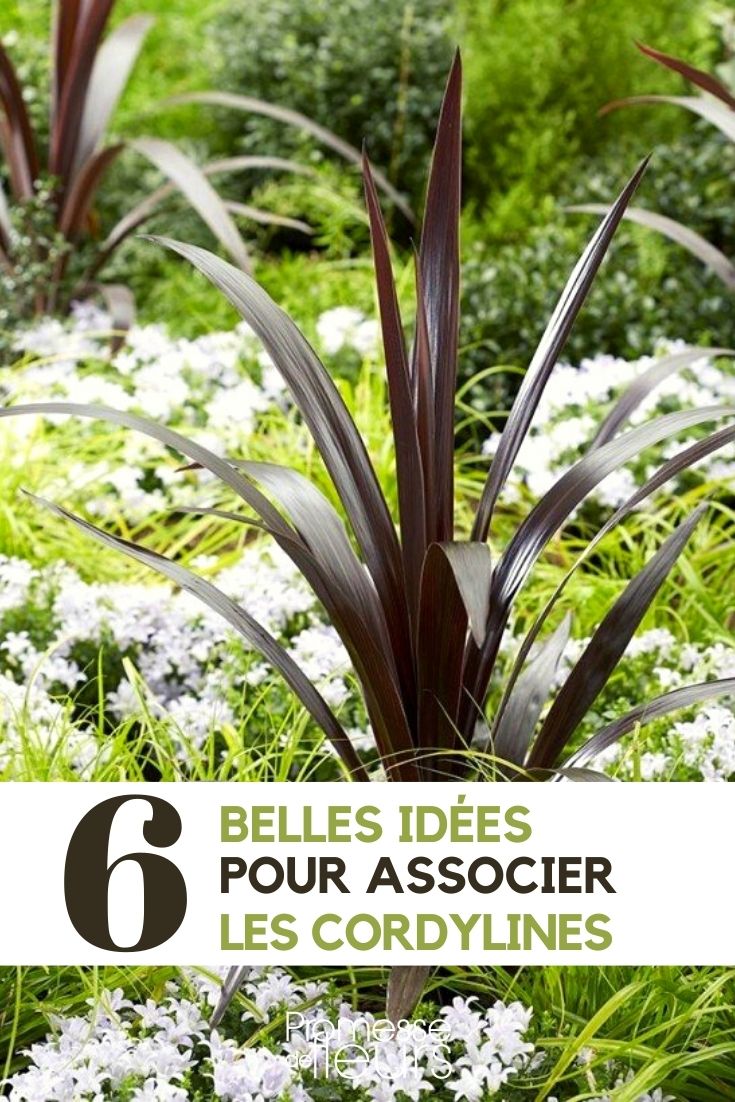






























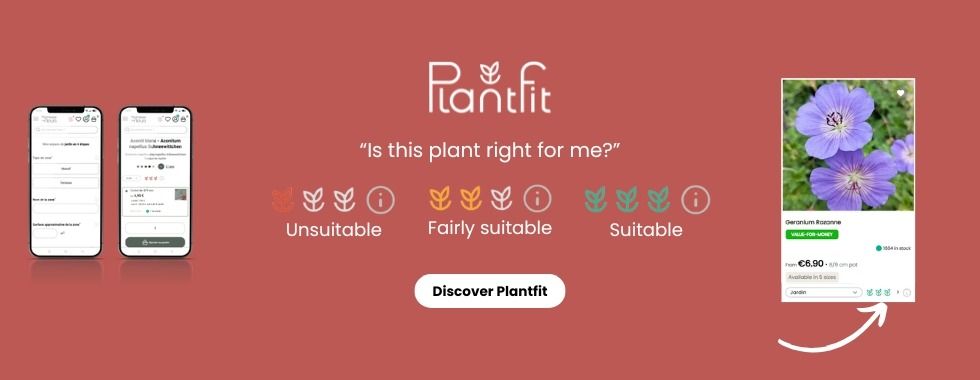
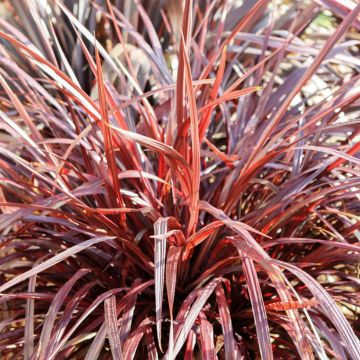
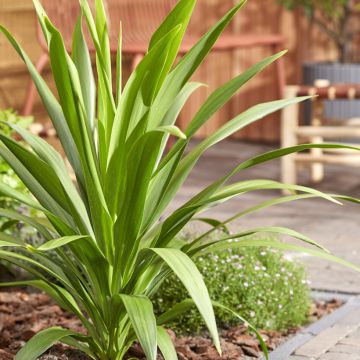
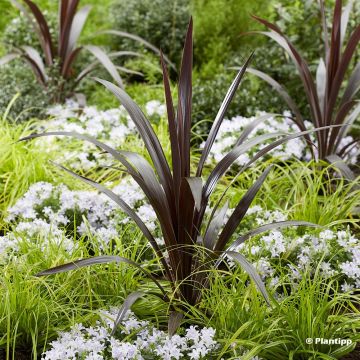
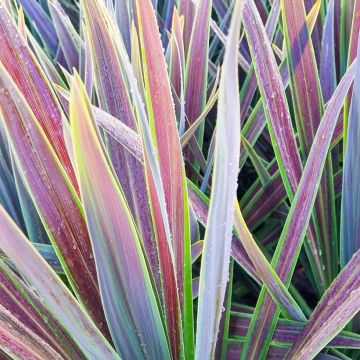
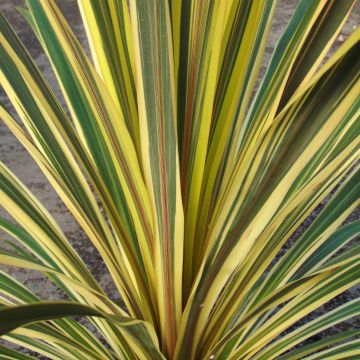
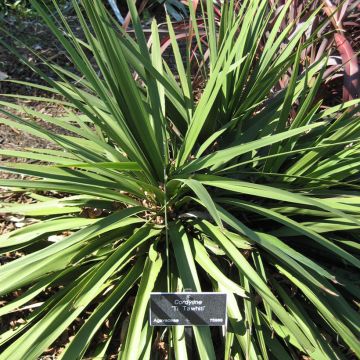
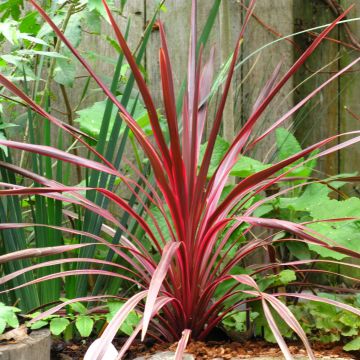
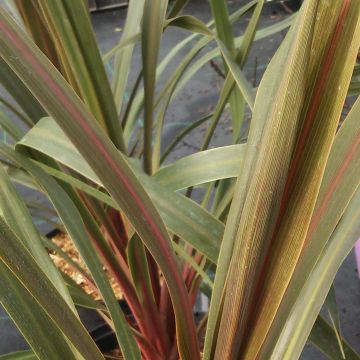
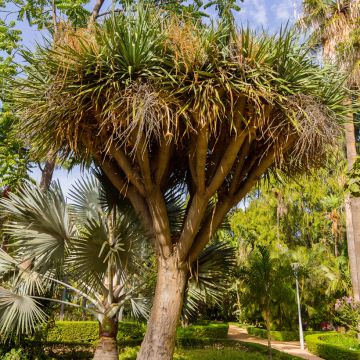
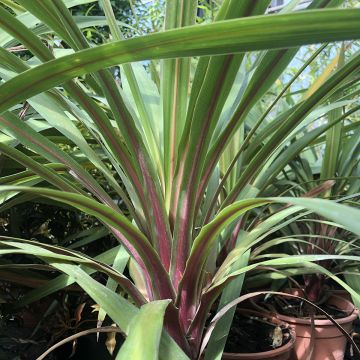
Comments